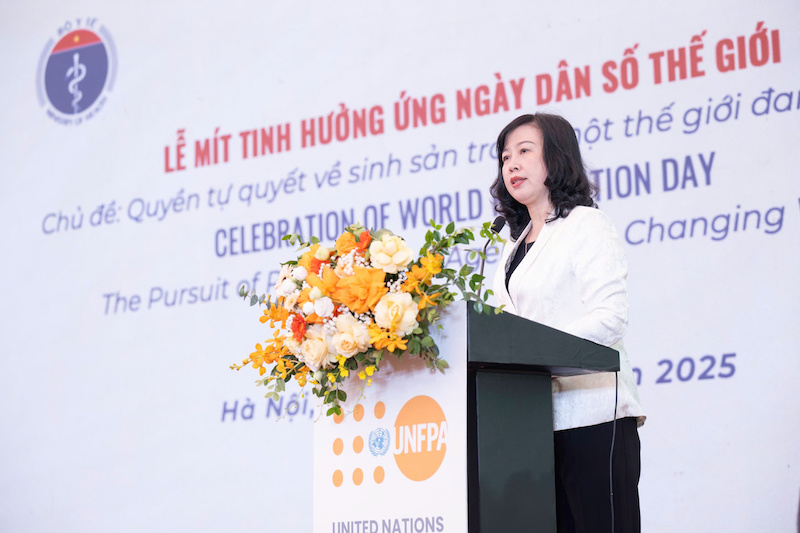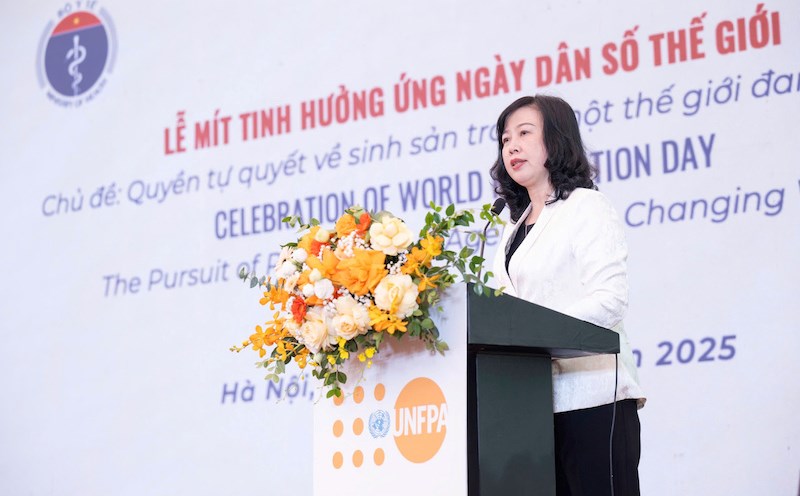At the rally in response to World Population Day (July 11) in 2025 and the announcement of the report on the world population in 2025 by the United Nations Population Fund, Minister of Health Dao Hong Lan said: According to the assessment of 7 years of implementing Resolution No. 21-NQ/TW, in addition to the achieved results, Vietnam is facing many difficulties and challenges affecting the sustainable development of the country.
That is, the total birth rate has decreased to the lowest in history and is expected to continue to decrease in the following years. Results of the population change survey 01/4/2024: In 2022, 2.01 children/woman decreased to 1.96 children/woman in 2023 and 1.91 children/woman in 2024, the lowest in the history of Vietnam's demography. Along with that, the aging population is taking place at a rapid pace in Vietnam.
The rate of increase in the sex ratio at birth has been controlled, but is not stable and is still high compared to the natural balance.
Results of the population change survey April 1, 2024: The sex ratio at birth in 2009 was 110.5 boys/100 girls; in 2019 was 111.5 boys/100 girls and in 2024 was 111.4 boys/100 girls.
Pregnancy and childbirth in underage women tend to increase; child marriage and consanguineous marriage in the Central Highlands and the Northern Midlands are still very high (21.9%).
According to Minister Dao Hong Lan, the Ministry of Health is currently actively focusing on developing the Population Law and the Target Program on Health Care, Population and Development for the 2026-2035 period with the goal of ensuring social security, health and equality for all people with the principle of taking people as the center, the goal of sustainable development of the country.
The Ministry of Health is proposing in the draft Population Law submitted to the Government for submission to the National Assembly for comments and approval at the 10th Session (October 2025) to have a number of priority contents such as: Incentives on maternity leave; cash or material support when giving birth; support for pregnant women, giving birth during pre- tiger and newborn screening; priority in accessing social housing support policies and other supports in accordance with the socio-economic development situation of each period.
"The Ministry of Health proposes many breakthrough policies, notably financial incentives in cash or in kind for families with one child, two daughters; stipulate measures to reduce gender imbalance at birth in accordance with each locality and the whole country.

Build and develop a facility to support and care for the elderly; develop human resources to care for the elderly such as granting scholarships and tuition fees for students majoring in geriatrics at training institutions in the State's health sector.
Regulate measures to implement pre-marital consultation and health check-ups for men and women; screening, diagnosis, and treatment of premature and newborns" - said the Minister.
And other supporting measures and policies to maintain replacement fertility; reduce gender imbalance at birth and bring the sex ratio at birth to a natural balance; adapt to population aging and improve population quality.











